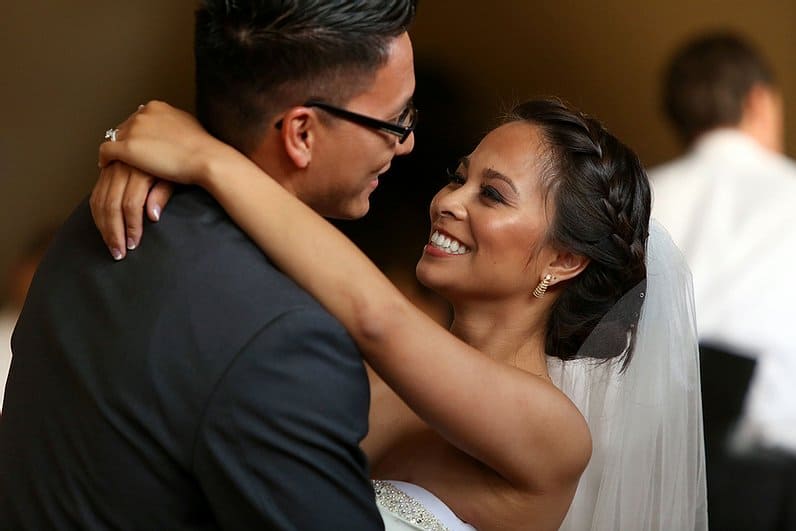October is one of the most popular months for couples to tie the knot in the United States. While wedding planning most often includes rehearsal dinners, guest lists, and honeymoons, couples often overlook estate planning.

For younger couples beginning a life together and getting married for the first time, estate planning may not be a terribly complicated endeavor. With minimal property and savings, simple wills, financial powers of attorney, and healthcare directives may be sufficient and prudent planning for the first years of marriage.
The age at which couples are getting married for the first time continues to creep upward, however. It is therefore common for individuals to accumulate significant amounts of property, savings, and investments during their single years. When couples with property beyond the most simple items marry, estate planning becomes much more urgent. It is even more crucial when children are born into the marriage or when entering a second or third marriage, perhaps creating a blended family.
Challenging Your Assumptions
An all too common mistake that married couples make when approaching estate planning is assuming that their spouse sees things the same way they do. The following questions should be asked of each spouse:
The answers to these questions regularly surprise couples. These questions should be discussed sooner rather than later, especially if they are unsure of how the other would answer. Couples who communicate and challenge their assumptions will be far better prepared to successfully complete their estate plan.
Joint or Separate Estate Plans
Depending upon the circumstances, it may be advisable for a couple to engage separate legal counsel to assist with the estate planning process. If any of the following circumstances apply, serious thought to hiring separate counsel:

There may be other reasons to seek separate counsel in estate planning. A good rule of thumb is that if there are aspects of one spouse’s financial or family relationships that will likely breed contention and misunderstanding between the couple, they should consider using separate counsel to help them carefully negotiate and resolve the legal and estate planning issues that intersect with these problem areas.
On the other hand, for those who are willing to communicate and resolve the differences discussed above, it may be possible to plan jointly. One advantage of joint legal counsel is that the attorney can act in some ways as a mediator and educator, helping clients identify and craft creative solutions to challenges that may arise during the estate planning process. Additionally, jointly hiring legal counsel tends to be a less expensive solution and communication tends to flow much more freely when fewer individuals are involved.
Elective Share Laws
It is important to understand that even for people who do separate estate planning, the United States has elective share laws that are designed to ensure that a married individual cannot completely disinherit a spouse or minor child from another marriage. The reason for these types of laws is that traditionally, lawmakers felt that these family relationships deserve to be protected from financial ruin by an individual who perhaps would unwittingly or unwisely attempt to disinherit a spouse or child dependent upon that individual for support.
These elective share laws allow a disinherited spouse or child who is still dependent upon the deceased individual to legally claim a percentage share of the deceased individual’s accounts and property regardless of what the will or trust provides.
If spouses have agreed to leave their entire estate to someone other than the surviving spouse, they will likely need to sign a prenuptial or postnuptial agreement in which the disinherited spouse waives elective share rights. Such a waiver must meet certain requirements to be valid, which can vary by state. For example, most state laws require that the disinherited spouse must have been represented by independent legal counsel when negotiating the waiver in the marital agreement.
Unmarried Couples
Marriage today is less common than it was a few decades ago, with more couples choosing to live together without the legal consequences of marriage. In nearly every state, intestacy laws that govern how an individual’s property is to be managed when that individual is unable to manage their own affairs or dies without a valid will or trust typically do not allow for an unmarried partner to receive the individual’s property. To ensure that property passes to a partner, certain legal steps must be taken:
Each of these methods of leaving property to a partner has pros and cons. For instance, jointly titling a home with a partner may be an easy way to ensure that the partner will inherit the shared home when their partner dies. However, if a couple splits up, the former partner will continue to jointly own that property and can force the sale of the property to liquidate the partner’s share. Additionally, there may be gift tax consequences to adding a partner to the title of a banking or investment account, which could affect them down the road. Even worse, jointly titling property with a partner can subject it to the partner’s lawsuits or creditor claims in the future even though the intent was merely to allow the partner to inherit that property upon their partner's death.
An unmarried couple should also have a healthcare power of attorney and living will drafted (also called an advance healthcare directive) naming the partner as a medical decision maker should they be unable to make or communicate the their medical wishes.
Estate Planning When the Marriage Is on the Rocks
Sadly, many marriages ultimately end in divorce. If a couple is in the process of divorcing, it is important to consider the implications of any current estate plan in place should something suddenly happen to your one of them. Some decisions that a person may want to change immediately include:
However, there are some things that may not be changed until after the divorce is finalized. For example, when a divorce case is pending in court, the couple is legally prevented from changing the following:
Once a divorce has become final and the property division is memorialized in the divorce decree, a person has the right (and should not delay) to revise their estate plan in whatever manner they wish, keeping in mind any requirements imposed by the divorce decree, elective share laws for child support, or continuing spousal support obligations.
The Bottom Line
As you can see, it can be critically important for people with spouses, partners, or children to obtain solid legal estate planning counsel. Without careful planning, they are almost guaranteeing that their loved ones will experience frustration, expense, and delays when it comes to the management and distribution of their accounts and property if something happens to them. Conversely, a carefully crafted estate plan can provide significant peace of mind for years to come. Contact our office today for a virtual or in-person meeting to discuss how, together, we can help you achieve your estate planning goals.
